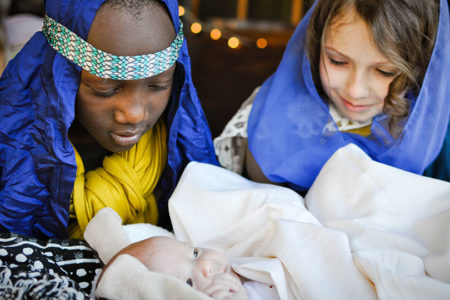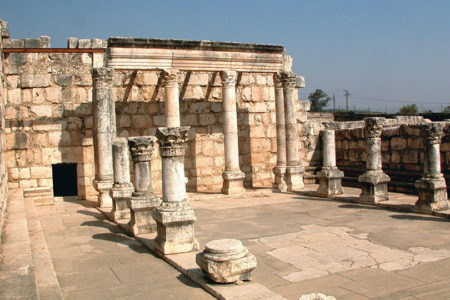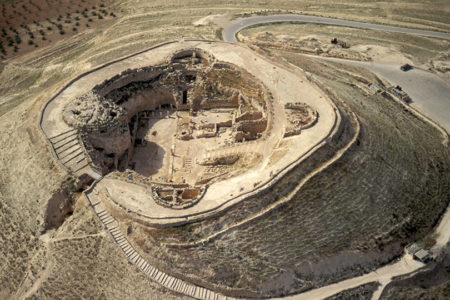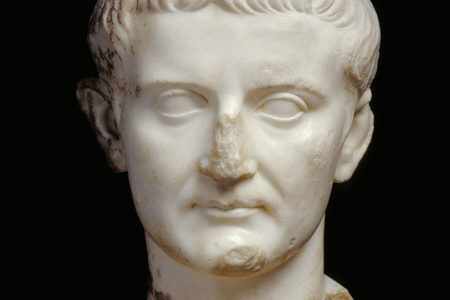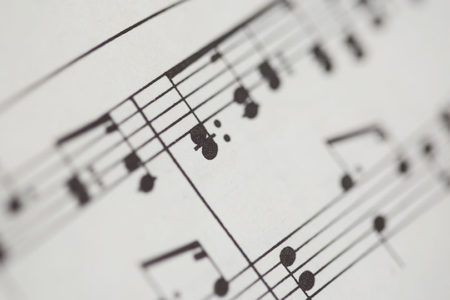The Treasures of the Season
We are approaching the most anticipated period on the Christian calendar. In the present environment, it is also the most controversial. Agnostics, atheists, and secular nonconformists have a field day in attacking any display of national reverence toward Christian observances, especially the commemoration of the birth of Christ.
For America, it is an extremely serious confrontation. In fact, it is a struggle between darkness and light.
For far too long, America and much of the Western world have caved in to the strident, consistent demands of a few vocal minorities and have allowed the enemies of anything Christian to win the day. As I write this, the issue of deleting the words under God from the Pledge of Allegiance is again before the courts, and there is no assurance they will not be stricken. This matter comes on the heels of decisions—as ludicrous as they are inflammatory—to exclude the display of the Ten Commandments in courtrooms, public buildings, and classrooms.
Although the House, citing the nation’s religious origins, voted in July 2006 to protect the words under God, the bill has a doubtful future in the Senate. And should the Senate pass it, states will still have the right to restrict it at their discretion. In Richmond, Virginia, an appeals court upheld a Virginia law requiring public schools to lead a recitation of the Pledge, observing that it is a patriotic exercise, not an affirmation of religion similar to a prayer.
Opponents of the phrase are determined to press their case until the words under God are removed, calling the House decision “an all-out assault on the Constitution.” David Remes, attorney for the man who objected to the Pledge in Virginia, complained, “The problem is that young schoolchildren are quite likely to view the Pledge as affirming the existence of God and national subordination to God.”
Mr. Remes and his cohorts presumably prefer instilling in schoolchildren unbelief in God and abhor any acknowledgement of national subordination to God or this republic’s foundational allegiance to Judeo-Christian values.
If the words under God are unacceptable for our society, what is acceptable? To whom would we rather pledge our allegiance? It is impossible to have a unified society where it is every individual for himself or herself. Neither is it reasonable or workable to allow our multiculturalism to undercut the prerogatives of the nation as a whole.
Believers of most persuasions prefer the view held by the majority of the Founding Fathers: “Blessed is the nation whose God is the Lᴏʀᴅ” (Ps. 33:12).
Christianity Is Not a Throwaway Faith
It is dramatically important for us to understand that Christianity is not a throwaway faith. Nor are the observances of the most sacred celebrations of the season disposable entities. They are the priceless treasures upon which our nation and the Western world have been constructed, and to allow them to be obliterated or capriciously denigrated will spell catastrophe.
In Australia, when many of the country’s 300,000 Muslims recently began fuming about not being able to incorporate Muslim Sharia law into their communities, several high-ranking Australian officials pulled no punches in telling them to fall in line with Australian law or leave.
But perhaps the most well articulated sentiments come from Barry Loudermilk, a decorated U.S. Air Force veteran and now a member of the Georgia House of Representatives. In an article that swept the country following September 11, 2001, titled “This Is America,” Loudermilk spoke for millions when he wrote the following:
This culture…has been developed over centuries of struggles, trials, and victories by millions of men and women who have sought freedom….We speak English, not Spanish, Arabic, Chinese, Japanese, Russian, or any other language. Therefore, if you wish to become part of our society, learn the language! “In God We Trust” is our national motto. This is not some off-the-wall, Christian, right wing, political slogan; it is our national motto. It is engraved in stone in the House of Representatives in our Capitol and it is printed on our currency. We adopted this motto because Christian men and women, on Christian principles, founded this nation; and this is clearly documented throughout our history….It is certainly appropriate to display it on the walls of our schools….If God offends you, then I suggest you consider another part of the world as your new home, because God is part of our culture and we are proud to have Him.
The Treasure of Saying Thanks
In the New Testament book of Romans there is an explanatory passage underscoring the price paid when societies run afoul of their obligation to be thankful. Addressing the calamitous failure of the great Gentile powers of the past, the apostle Paul alluded to a primary cause of their demise: their refusal to bear a sense of gratitude to God and acknowledge that, because of His mercy and beneficence, we live, move, and have our very being:
Because, although they knew God, they did not glorify Him as God, nor were thankful, but became futile in their thoughts, and their foolish hearts were darkened (1:21).
As children we were taught to say thank you for every gift, kindness, and act of generosity that came our way. And though we may not have known where the precept came from, it was being etched into our characters from an indispensable biblical truth. Not only did the Bible set the principle before us, but the history of the nation dignified it as well.
The official commemoration of Thanksgiving Day came to our shores with the early settlers, probably rooted in their English heritage. In these days of opulence, pleasure, and privilege, we often think of the day as one of leisure, overeating, parades, and football. I confess that I am among those who most heartily enjoy every aspect of the celebration, especially that found on the table—as well as around it with family and friends. To say that it is a special day is inadequate; it is a day that speaks to what we are and where we came from.
But lest we forget, let us return to the reason we bow our heads around our tables and give thanks. In 1621, after decimated settlers survived a witheringly bitter winter, spring planting, and autumn harvest, Gov. William Bradford of Plymouth Colony issued the first Thanksgiving proclamation. The three-day event was a celebration of survival, sustenance, and the promise of better things to come. But the focus of this Thanksgiving was unmistakably God Almighty, because those people firmly believed that it was His grace and providence that had brought them through.
On November 26, 1789, Pres. George Washington proclaimed a nationwide Day of Thanksgiving. In explicitly clear terms, the president said the day should be one of prayer and giving thanks to God. It was to be celebrated by all religious denominations to promote a “spirit of common heritage.” So prayer, along with thanksgiving to God, crafted the “spirit of common heritage” that has bound us together as a people and unified us as one nation under God.
The Treasure of Returning to Bethlehem
A few years ago I stood with a group of fellow Friends of Israel Christian travelers in an observation tower overlooking the shepherds’ fields on the terraced hillsides ascending to the town of Bethlehem. Night had fallen, and we stood together holding candles and singing the familiar carols that illuminate the season and remind us of what was transacted in a stable there more than 2,000 years ago. Although I’m not easily moved by emotions of the moment, I confess that I was deeply affected by the experience.
As we left, a sense of unity, worship, and that “spirit of common heritage” that our first president spoke of enveloped us. There was no thought of the trivialities that may have divided us, considering we came from several evangelical denominations. Our focus unified us. It was on the One who gave us all a reason to be there. Jesus came to Bethlehem, and we had returned to celebrate His coming. Above all was a humble feeling of gratitude—thanksgiving, if you will—that God had remembered us and moved to extend grace that none of us deserved.
The ride back to our hotel was mantled in silence. I think we probably were all contemplating where we were when the Messiah found us. And what we might have been if He had not given us new life.
It is brutally demeaning to witness the ever-diminishing respect for Christ and Christianity and the increasing hostility that drives the forces determined to wipe God from the nation’s public institutions. Strange, indeed, that we have come to a time when the only politically correct utterance of the name of Jesus Christ is as a curse.
In the assault on biblical Christianity and its Christ, a genocidal spirit is at work. It may not be identical to the bloodlust of Iran’s Mahmoud Ahmadinejad, who aspires to wipe Israel off the face of the earth. But the goal is much the same: to end the nation’s right to celebrate the Person and goodness of the God who has brought us to the heights of prominence, prosperity, and privilege that we have historically enjoyed as a free people.
One of the most dispiriting phrases in the whole of Scripture regards the condition people reach when God is forced to turn His back:
And even as they did not like to retain God in their knowledge, God gave them over to a debased mind, to do those things which are not fitting (Rom. 1:28).
What this verse tells us is that there is a time, under given circumstances, that repudiation of God results in God allowing societies to have what they want: being left to themselves and their own evil desires. Can you imagine what godless people would celebrate in a God-free environment? We don’t need to wonder. It is on display in all of the ancient archives containing the pagan rights and debauchery of peoples who, left to themselves, worshiped gods of their own making, served their own lusts, and eventually destroyed themselves by drowning in their own dissipation. Humankind, left to itself, provides only a dreadful chronicle of folly and failure.
Therefore, is it straining credibility to assert that we have, in this most wonderful season of the year, treasures to be cherished, guarded, and passed along to those who will come after us? Indeed not. Thanksgiving and the Christmas celebration of the nativity are nonnegotiable. They represent the basis of our freedom. And whether you are Jewish or Gentile, they stand as a guarantee of security and “the spirit of common heritage” that binds us together.
So, as the hymns say, “Come ye thankful people come,” and let us sing together “joy to the world.”

